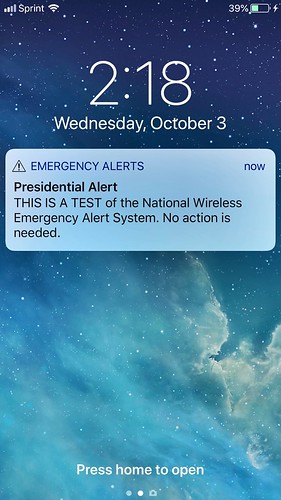Emergency alert: Oregon agencies urge people to stay home as severe winter storm hitting much of the state
Emergency Alert #EmergencyAlert

SALEM, Ore. (KTVZ) – – Many parts of Oregon are experiencing severe winter storm conditions, including snow, ice, freezing rain, high winds, heavy rain and freezing temperatures, and emergency efforts are underway to help those affected.
The Oregon Department of Emergency Management has activated the State Emergency Coordination Center for state agencies and nonprofit partners to share information, determine needs and support resource requests; these agencies are collectively sharing life safety resources.
Oregon Department of Human Services’ Office of Resilience and Emergency Management (ODHS OREM) has activated 211 to support warming shelters in several counties across the state. If you or someone you know needs a place to stay warm, call 211 or visit https://211info.org to find open warming centers in your area; 211 can also offer and coordinate transport services to and from warming centers. If you can, check on your neighbors who may need assistance and consider volunteering at a warming center. Look online for volunteer opportunities in your community.
Oregon Department of Transportation (ODOT) reported that snow and freezing rain with winds and icy conditions are making the state’s highways hazardous. Downed trees and power lines will also make driving dangerous.
Consider staying off the roads until the weather improves. If you absolutely must drive, slow down, increase the following distance between vehicles and drive with caution.
ODOT crews said vehicles are traveling too fast for the current road conditions, passing and following snowplows too closely, and trucks are not using chains when needed. For everyone’s safety, give snowplows and road crews extra space to do their work. If you absolutely must travel, check road conditions by dialing 511 or visiting TripCheck.
If you decide to travel, plan extra time for your journey and carry emergency supplies including food, water, phone chargers, blankets and warm clothes. Visit ODOT’s winter travel tips page for winter driving car essentials.
Oregon Health Authority (OHA) is warning the public about the risk of carbon monoxide poisoning, hypothermia and frostbite in cold weather. The agency has several tips available to help you stay safe and healthy. For carbon monoxide prevention:
Hypothermia and frostbite can settle in more quickly than usual when there is a windchill factor. Learn more about how to prevent, identify and provide first aid for these two conditions at OHA’s website about winter weather and your health.
Oregon’s Public Utilities Commission (PUC) is seeing widespread power outages due to high winds. Cell tower outages challenge communications for cell phone service and the internet service may be impacted by communication fiber and electric outages; use a battery-operated radio to listen to public broadcast stations for weather and situation updates. While utility repair crews are out working to restore power, outages are widespread and may not be back up for some time.
During a Power Outage:
Natural Gas Tips During a Power Outage or Evacuation:
Heavy rain has been forecast for portions of south-central Oregon. Department of Geology and Mineral Industries (DOGAMI) is warning people of potential debris flows and landslides in areas of steep terrain and near burned areas from recent wildfires. People, structures and roads located below steep slopes in canyons and near the mouths of canyons may be at serious risk. Visit DOGAMI’s website to learn ways to stay safe.
If your home or car is damaged from the winter storm, the Oregon Division of Financial Regulation recommends calling your insurance company or agent to ask about your policy coverage, exclusions and deductibles before filing a claim. If you have insurance questions or concerns, contact the division’s consumer advocates at 888-877-4894, email dfr.insurancehelp@dcbs.oregon.gov or visit the division’s storm insurance resource page.
ODEM encourages people to stay home, be informed, have an emergency plan and stock an emergency kit.
Develop an emergency plan that includes personal, work and school contact information for everyone in the household. List your medications, prescriptions, healthcare provider contacts, insurance carrier’s information and information you’d need for your pet. Cover where you’d evacuate and shelter, how you’d communicate and where you’d reconnect if separated. Discuss the plan with your household, loved ones, friends and neighbors. Find an emergency plan template at https://ready.gov/plan.
ODEM advises older adults, people with disabilities and caregivers to consider individual circumstances and specific needs when planning for emergencies and create a support network of people who can help during an event. People should check on elderly neighbors or individuals with special needs who might need additional assistance. Learn more at https://ready.gov/older-adults and https://ready.gov/disability.